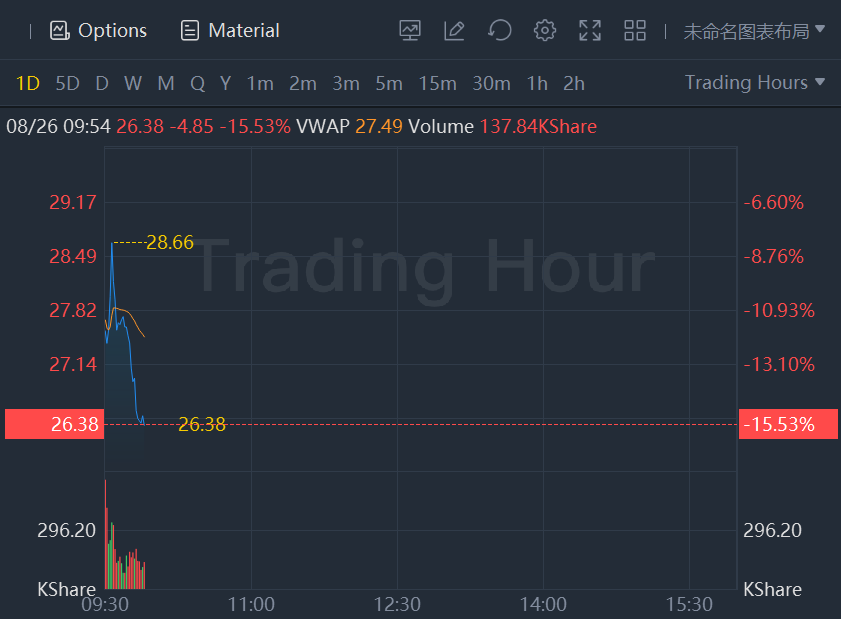Affirm shares plunged 15% in morning trading Friday after the buy now, pay later company posted a wider-than-expected loss for its fiscal fourth quarter and worse-than-projected outlook for fiscal 2023.
For its fiscal fourth quarter, Affirm (ticker: AFRM) lost 65 cents a share, which was worse than losses of 58 cents a share forecast by analysts surveyed by Factset. Revenue surprised to the upside, hitting $364.1 million, better than the $355 million analysts projected.
Affirm grew gross merchandise volume by 77% year over year and said it saw 85% of its transactions come from repeat users.
“While the growth of online commerce is falling back to pre-COVID levels, thesecular trend toward adopting honest financial products is gaining momentum. Not only does this make our mission more important but it also plays directly into Affirm’s strengths,” Max Levchin, chief executive of Affirm, said.
Still, Wall Street was hoping for more from Affirm. The company projects that fiscal 2023 revenue will come between $1.6 billion and $1.7 billion, while Wall Street was expecting $1.9 billion—a figure that is closer to its rapid pandemic growth.
Shares of Affirm were off by more than 15% in after-hours trading Thursday.
Wall Street has kept a close eye on Affirm this year to see how the lender is able to navigate through an increasingly challenging economic environment, marked by rising interest rates and higher inflation. Affirm had been a pandemic darling as more shopping shifted online during the pandemic but Wall Street soon began to fret that its business model—which provides short-term loans—wouldn’t hold up in a weak economy. Shares are down 70% on macro fears and increasing competition from more traditional lenders.
In addition to growth slowing down, Wall Street is worried about rising delinquencies as the economy weakens. Affirm’s provision for credit losses grew to $72.7 million, compared to $25.5 million in the year-ago quarter. To be sure, the last year’s fourth quarter was marked by reserve release. Affirm noted that its provision for credit losses fell by 4 basis points as a percentage of gross merchandise value to 1.65%. (One basis point equals one-hundredth of a percentage point.)
Last month the company saw 30-day delinquencies in one of its trusts increase by 48 basis points compared with June. Even bulls had to acknowledge that the increase was faster than expected.
“Though we think current levels are manageable, we’ll continue to closely monitor credit performance to assess impacts to gross margin,” James Faucette, an analyst at Morgan Stanley, wrote in a note ahead of earnings. He rates Affirm stock a Buy and has a $50 price target on shares. That said, he concedes that it will likely take several quarters of Affirm growing its loan book while managing credit risk before investors feel confident about the stock.
Fewer than half of the analysts have the equivalent of a Buy rating on shares though they are more bullish on the stock’s price, with an average price target of $37.68, or nearly 25% higher than recent trading levels.
The reason for bearishness over Affirm stems in part from the company not being tested during an economic downturn. Shares were volatile but held up reasonably well for much of its first year as a publicly traded company as consumers were generally flush with pandemic-era stimulus cash. But now that consumers are feeling more constrained due to inflation, they may be borrowing more than they can afford to pay back.

Comments